Convinced that he is being persecuted by a parastate mafia, of which Alberto Fernández or Cristina Fernández de Kirchner are instruments, Fabián 'Pepín' Rodríguez Simón spills the details.
Speaking from Uruguay, where he has sought refuge, something unprecedented in the democratic era and a right used, for example, by Evo Morales after the coup in Bolivia.
Rodríguez Simón denies having been part of a judicial panel under Mauricio Macri, relating it to ex-attorney general Alejandra Gils Carbó’s exit.
The Parlasur deputy affirms that he had nothing to do with the attempt to buy out the C5N news channel. He speaks of his personal liking for social leader Juan Grabois and the columns he wrote for Página/12.
Uruguay’s Law 18,076 says: “Anybody will be recognised as a refugee who owing to grounded fears of being persecuted for belonging to a determined ethnic, social, gender, racial, religious or national group or their opinions and finding themselves outside the country of their nationality and unable, or due to the aforementioned fears, unwilling to rely on the protection of that country or lacking nationality and finding themselves consequently outside the country where they had their usual residence cannot, or due to the aforementioned fears, will not return to it. They have fled the country of their nationality or, lacking nationality, have fled their country of residence because their lives, safety or liberty are threatened by generalised violence, aggression, foreign occupation, terrorism, internal conflicts, the massive violation of human rights or any other circumstance gravely disturbing public order.”
How does your specific situation fit into this framework?
I am indeed outside Argentina, in Uruguay, and events at home have created in me grounded fears of losing my freedom due to my political opinions, as expressed by my activities.
By requesting asylum, I am renouncing legal protection and rights in Argentina and I do so because I feel I am suffering political persecution due to my opinions. I thus have grounded fears of an undue loss of my freedom if I return to my country.
That fits perfectly into what you read out, more the first part than the second.
When did an Argentine last request political asylum abroad?
I haven’t investigated that because I’ve been here in Uruguay. I’ve read that nobody has requested it since 1983, at least not in Uruguay.
Here there are different levels of international protection for fundamental rights and freedoms. One is asylum but there are other mechanisms. Here in Uruguay it was recently requested by some Paraguayan students who were storing weapons while Argentina also faced the asylum issue with a Chilean, Pedro Apaolaza, over eight years ago. He had been indicted and convicted for having killed people but I don’t know that case too well.
The most recent asylum case was Evo Morales when he resigned the [Bolivian] presidency in late 2019 and obtained diplomatic asylum in the Mexican Embassy. Upon arrival in that country on December 13, 2019, he also requested asylum in Argentina. Foreign Minister Felipe Solá immediately conceded it to him. He had hardly entered when he signed a request for refugee status, another institution similar to asylum. From the moment you sign that request, you are protected. Solá said as much himself: “They cannot extradite Evo because he has requested refugee status in Argentina.”
Evo had some extradition problems related to the abuse of underage children. I have no way of knowing if this case was real or invented.
The dictatorship and situation in Bolivia were particularly violent. Doesn’t your case appear a bit over the top?
From 1983 onwards, Argentina recovered an important institutional level with democracy but then it went downhill. It’s not the same Argentina as that governed by Macri nor even the Argentina governed by Cristina. The degradation and the institutional corruption have increased notoriously.
In my case, this decision does not come free and nor is it easy – it’s really uncomfortable. It’s quite clear to me that I am privileged compared to many people who have suffered far more serious persecutions. In my case it was not even persecution by the state but a kind of organisation beyond the state, the gambling mafia. They’re asking for my return in order to throw me into jail. They’re accusing me of having collected the tax on gross earnings. It might seem minor but it is an important tax and they owed a lot of money.
This case involved [businessman] Cristóbal López and his partner Fabián de Sousa with Alberto Fernández in the background. [Then-Cabinet chief] Fernández signed the famous decree of December 5, 2007 along with [then-president] Néstor Kirchner extending the concession for the Palermo racecourse for 15 years, along with permission to install 1,500 more slot machines before going on to collect money from Cristóbal López as his corporate lawyer. Cristina Kirchner had business and real-estate enterprises in common with Cristóbal López but I’m not going to go into that too much because it does not affect me although she is clearly aligned [with Lopez], as was demonstrated the day after my request went public, when both President and Vice-President answered me via Twitter. That shows the importance of the persecution and that the state is instrumental.
It’s not the courtroom of María Romilda Servini de Cubría which is persecuting me, she’s just an instrument. That courtroom is manipulated. Servini is old and notoriously manipulated by her staff linked to intelligence agents. The enormity of the power persecuting me is what drove me to seek refuge in Uruguay. As a refugee, I’m not covered by national law; there are supranational institutions to protect the persecuted, which is what protects me. There is a universal system for the protection of persons and another inter-American. And yes, I have no faith in Argentine justice, today it’s a tool for persecution. They’re trying to throw me into jail.
Why did you not consider asking for exemption from imprisonment ahead of political asylum?
They summoned me to defend myself. I’m not a criminal lawyer, I need to be accompanied by somebody to explain to me the dangers. But the defence is the most important part of the whole trial. There is no proof to indicate that I had committed any crime. They summoned me and at the same time prohibited me from leaving the country. There is a simple reading to this: they interrogate you, automatically place you on trial, prevent you from leaving the country, go making up other cases against you and then send you to jail.
Apart from the enormous quantity of procedural irregularities, judge Servini de Cubría excused herself from pursuing this case for moral violence last August, which provoked pressures and criticisms from C5N. When she backed down, C5N stopped their aggressive criticisms of Servini. From then on the case was pushed by Carlos Beraldi, who is not only the lawyer of Fabián de Sousa but also of Cristina Kirchner. That’s when I was prohibited from leaving the country and nor does my summons tell me what crime I have committed. Impossible to defend myself without knowing the crime committed. As far as I can see, they had already prepared the indictment, which they used to request my arrest by Interpol.
You are accused of lying to judge Servini de Cubría by showing that you had a Buquebus ticket to return on May 15. When did you decide not to return to Argentina?
I have my interests, my heart and my head in Buenos Aires. I came to Uruguay on December 8 thinking of returning at the end of March. There was some problem, the ticket was changed and I almost lost it. On March 18, Martín Soria was named Justice minister. That same day Beraldi shows up asking for my summons, which Servini grants automatically without specifying what I am accused of. In continuation Beraldi then asks for me to be forbidden from leaving the country and for my passport to be held back. The judge grants that, alerts the immigration authorities electronically and says: “Having done that, I don’t need the passport.” I had already advised that I was here with no restrictions against my leaving. My secretary tells me that I had a return ticket for May 15 with the summons set for May 26 – afterwards June 17 was proposed. I started to think of asylum, considering all the elements. I studied public international law for an entire month. Even though the judge postponed the summons before I informed her that I had requested asylum, I informed her in time.
So the point which made you change your mind about returning to Argentina was the appointment of Martín Soria?
It all added up. The case is plagued with procedural irregularities. I was not permitted to exercise my right to self-defence on many occasions. A list of the 11,000 telephone calls I made during the four years of the Mauricio Macri presidency [2015-2019] is circulating. I was not allowed to have an expert of my choice audit them. The list was drawn up by DaJuDeCO [Dirección de Asistencia Judicial en Delitos Complejos y Crimen Organizado], the organism in charge of wiretapping headed by Juan Tomás Rodríguez Ponte, the son-in-law of Alfredo Mangano, a secretary of Servini who runs the courtroom and is publicly linked to intelligence. In these 11,000 calls made public there are omissions and duplications. They very crassly duplicated some calls to blow them up, as in the case of Horacio Rosatti, whom I called several times, above all just prior to his becoming a Supreme Court justice. Not only with Rosatti but also with many other people, they repeated the same call four or five times to add to their list. They also inserted calls by people whom I did not know. While those calls formed a very strong element, the C5N pressures against Servini set the alarm bells ringing for me. The summons without specifying any crime and the ban on leaving the country, accompanied by C5N’s media campaign between mid-March and April, ended up convincing me. I had no dimension of just how powerful Cristóbal López and his partner De Sousa were or the interests behind them.
You were in Buenos Aires until December 8 during practically the whole first year of the Alberto Fernández presidency. Did something click for you during that year?
It was the course which the case was taking.
Did you have expectations that the Alberto Fernández government would be moderate, with Martín Soria’s entry implying a radical turn?
Their brakes have failed altogether. Worse: we are facing a form of incipient anarchy. There are times when governments have no power or are highly inept or impotent. Unfortunately, that is what is happening to Alberto Fernández. Although I am persecuted politically, I want him to reach the end of his term. Those idle hands for whom the devil has work are starting to operate off their own bats, private task forces – you know what I mean. The state is a tool of somebody and something more powerful. They have Alberto, Aníbal [Fernández] and intelligence agents all hired out. They are linked to Cristina. That lawyer Beraldi has promiscuous relations with [prosecutor] Guillermo Marijuan, interpret that word “promiscuous” how you like. Soria’s appointment was crossing a threshold.
You are a Parlasur deputy. You have been living in Montevideo without interruption ahead of taking this decision. What is your relationship with Uruguay? Where do you live? It is said that you were living in the Hyatt Hotel and that you have run up some enormous bills in your residence.
Last year I had to sell off some of my assets to face this year. When all this is over, I hope to be able to work normally again. I never lacked work. My kind of legal work, litigating in cases of high complexity, is not just in Argentina. I have worked outside the country and will do so again. The generosity and hospitality of the Uruguayans is extraordinary but it’s still not my country – my soul lies on the other side of the estuary.
As a Mercosur parliamentarian, I used to come once a month, stay three or four days in a hotel and do the Parlasur stuff. I have some assets and land in Uruguay, all declared.
Do you still go to Parlasur sessions?
There have been no Parlasur sessions on the house floor since December, 2015.
Do you still participate via Zoom?
I do, over and above some Frente de Todos parliamentarians asking for me to be unseated for having sought asylum.
What is your relationship with the government’s parliamentarians, for example, Víctor Santa María, who is also a Parlasur representative.
I’m not popular with Argentina’s Mercosur parliamentarians, basically due to a series of errors committed when drafting the electoral law and due to a decision by the Common Market Council, which is Mercosur’s highest organ. They have not been paid for the last four years and nor are they now. They attribute this to me because I accompanied Mariana Zuvic in her “Chau privilegios,” which said that until Parlasur started functioning regularly, it was not fitting that we should be paid. The courts ruled in favour of this campaign, something which disturbs them.
How did you get to know Mauricio Macri? You’re more friendly with [Buenos Aires] City Mayor) Horacio Rodríguez Larreta ...
I don’t like to talk about my private life. If I don’t like talking about this in general, you can imagine how much less when it’s about my private life. I had some trouble with some good journalists of yours because I prefer not to talk about my private life.
It is said that you were the true Justice minister, not Germán Garavano, and that you had your own office in the Casa Rosada.
I went a lot to the Casa Rosada. I was an advisor to City Hall and acted as a liaison for political and legal questions between the jurisdictions. Both jurisdictions were at stake and needed connecting. Everything I did was political. I’m a card-carrying member and leader of PRO [centre-right party], on their City executive board for many years. Politics is one thing I know how to do. What Ernesto Sanz did politically for the UCR Radicals, I did for PRO.
Playing politics, in the case of gambling, was explaining to our allies why we weren’t kicking out Cristóbal López and his partners but permitting them to go straight. I cannot explain to you all the weeks of work that cost me. Nor did I go all that much to the Casa Rosada, maybe I don’t know, once a fortnight. And sometimes, when I needed to fix up meetings, they sat me down in the office of José Torello, who has been a close friend of mine for 40 years and the reason why I got close to all this.
I’m not a close friend of Mauricio Macri. I have a social relationship of confidence and respect but no intimacy. With Horacio I perhaps have a closer relationship but I haven’t seen him for a year. No, I tell a lie – I saw him last December.
Do you know Alberto Fernández?
Don’t know him, never seen him.
How would you describe the relationship between Alberto Fernández and Grupo Indalo?
As more than promiscuous. That relationship is going to show up in the trials and it will be understood why, after signing that scandalous decree to extend gaming for 15 more years, giving them 1,500 more slot machines, he then moved onto invoicing for Cristóbal López – through to the moment he reached the presidency, it is said. And small fry like me have to request asylum. What Alberto Fernández put out the following day on Twitter and Cristina in her blog says a lot about what that relationship was.
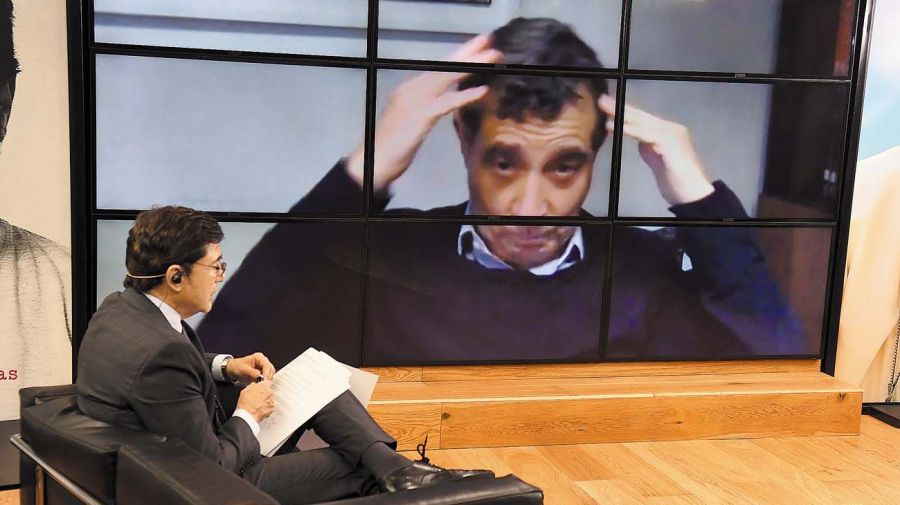
How do you explain that recently coined phrase of Macri’s ‘judicial panel,’ that committee assembled by the Executive Branch to analyse the evolution of the most important cases. The previous government must have had one too.
I was not on it. As Mayor of the City of Buenos Aires in 2010, Mauricio Macri created by decree a judicial cabinet consisting of the Legal and Technical secretary, the City attorney-general and the Justice secretary. I was one of the advisors with Torello chief advisor. We created it to discuss the legal rather than political future, above all the main judicial cases of the City.
When we moved into the national government, they continued meeting informally, although not any more within the framework of the decree or as a group of government officials. I don’t know if they looked at the main cases but they did work on selecting the lists of judges to send to the Magistrates Council on behalf of the Executive Branch, naming several hundred judges. One member of that panel was Juan Bautista Mahiques, who sat on the Magistrates Council. The government representative on the Magistrates Council is [Interior Minister] Wado de Pedro’s foster brother, Gerónimo Ustarroz, and he continued during our government. I don’t know him personally and have never seen him.
Was Daniel Angelici on that panel?
I never was. I don’t think so because he was not an official. I only came across Angelici once at a social event hosted by the national government
Was Macri annoyed when you told him about your decision [to seek asylum]?
I don’t know about him being annoyed. I informed him. Those are particular appreciations. I have no convictions, I’m not on trial and my record is spotless. Mauricio cannot allow himself that liberty. He disagreed but he understood me – he pretty well said as much.
You said: “I’m the first link in the chain but more members of the previous government will follow.” In your case the top link is Macri. Will there be attempts to affect the liberty of Macri himself?
I don’t know about “affect” but they will try to involve him more. It’s crassly, brutally and shamelessly clear what they seek. I was in charge of supervising gambling activities in the City from December, 2013 without any executive functions. City Hall named other officials and I advised them. Whoever took the decision and signed the legislation was the one who decided. City Hall had a plan, they say. I was a City Hall advisor and sat on the liaison committee between the National Lottery and the Gaming Institute since 2014. Obstinately De Sousa says: “Pepin represented Macri,” reporting directly to him.
I repeat, with Macri I can only recall having spoken once when we were completing the transfer. They insist on that ridiculous story. It’s unthinkable that the President of the Nation should bother himself with the gambling in the City of Buenos Aires and whether they pay tax on gross earnings or not.
But you yourself said: “I’m the first link” and the next link happens to be Macri.
The next could be Mario Quintana, José María Torello, Javier Iguacel or Alberto Abad, I think they’re next.
Would you advise Macri to become a deputy in order to have parliamentary immunity?
I cannot give an opinion there. He’ll have to work that one out.
Do you fear that he will go to jail?
I envisage a campaign of persecution against Macri, his family, allies and officials. This case is the best example. What did we do with Javier Iguacel, Alberto Abad and Leandro Cuccioli? I collected the tax on gross earnings for the City and then departed the scene. Three years later I found out that this could be considered wrong.
The point is that they consider you to be the true Justice minister who named the members of the Judiciary, not a tax-collector, they attribute you with being the real mastermind of the relationship between the Executive and Judicial Branches during the four years of Macri.
That’s not what the case file says. Besides, I’m not. I hardly know any judges.
Macri speaks of persecution and Cristina of ‘lawfare.’ What is your own interpretation of the use of one and the other word? Is there a linguistic difference?
Cristina likes to use these yellow press terms now and again – it’s not just persecution, it’s political persecution. In the case of these two persons [López and De Sousa], it’s more serious – it’s also a desire for revenge. They’re obsessed with it.
It’s true that they were 22 months in prison. I wouldn’t say that was reasonable. From a distance, it might also seem arbitrary and extortionate because it was on minor charges and they were not convicted. But they channel all their libido into persecuting Macri because they hold him responsible for all their woes. They think that I was an instrument as having been the first to denounce their tax arrears. They consider me guilty for their loss of impunity, power and respect in that world. They seek to jail me as a symbolic reparation of their loss of impunity.
[Treasury Prosecutor] Carlos Zannini rejected all the proposals of the Correo Argentino post office for integral payment or declaring bankruptcy but a week later the companies of the Grupo Indalo were granted entry into a moratorium when they were broke, thus breaking every norm. And less than a month ago they had to accept a Commercial Appeals Court ruling that the management of the group’s company Oil was ruinous. The AFIP tax bureau lawyer of Alberto Fernández said that it was puerile to pretend that they had defaulted in early 2016 under the pressure of the Macri government when they had already defaulted in 2011.Between 2011 and 2016, they failed to comply with 192 payment plans with AFIP, pocketing all that money.
I have no idea if that is a crime and if they should go to jail. But the appropriation of funds and the power they have is crystal clear. When Correo Argentino requested the same treatment as Oil Combustibles, Cristóbal López immediately declared that Mauricio Macri should first spend 22 months in jail. That and other series of data lead me to believe that there is a generalised perception within which I am the Turk’s head for procedural reasons...
Were they seeking an eye for an eye and a tooth for a tooth, so that you and Macri might suffer the same fate as Cristóbal López and Fabián de Sousa?
That is the most atavistic. There is also an attempt to place everything on the same level as Kirchnerite corruption. Whether in or out of jail, the Kirchnerites tossed money-bags [into convents], stole money, had money-laundering problems, appropriated public funds, held back taxes and now accuse us for collecting them. They pretend to place us on the same plane as them, whether we stole or not. That’s the concept they’re trying to install.
How would you explain to first-year law students the interference of big business and the intelligence services in court rulings?
It’s a reality, a dynamic reality. The momentum is not towards recovery but degradation, that’s why the anarchy and the powerlessness of the government seems worrying to me. I’m a lawyer, not an academic or a judge. I do not even have training nor interest in judicial policies. I was a bad student and would be a worse professor. I do not know what I would say nor how this can be solved. If any solution had occurred to me, I would have tried to participate in the judicial policies of Mauricio’s government. I preferred to be a lawyer.
The Twitter account of the journalist Iván Schargrodsky shows a 2019 photo of you together with Juan Grabois. What is your relationship with Grabois and how do you relate to Kirchnerite leaders?
Since I am sceptical, I’m a liberal and never very sure of being right. I try to be convinced that I am wrong and it makes me very happy when somebody corrects me.
In the case of Juan there is a relationship – I’m not a friend but I’ve been pretty fond of him for many years. Juan has many things with which I do not agree but he is an extremely sensitive person. He suffers the sufferings of others as if it were his own. I don’t discriminate in any of my relationships according to what they think about politics, religion or sexuality. I’m totally open. Other things matter to me more.
Grabois said: “With Rodríguez Simón I negotiated the national law to upgrade slum neighbourhoods, when we already had it up and ready and approved by the Attorney-General. The then-Frente de Todos opposition did not take at all kindly to a good law coming out of Macri. And I explained to them: ‘Look, they’re going to be able to capitalise on this politically but it is a very positive law and will be useful in the future.’” How was that negotiation?
Chatting to a group of PRO leaders, we began to talk of pending social debts at that time and one of them was housing. Since I’m pretty fond of history, we began to talk about the reforms of Cleisthenes, the ruler before Pericles who introduced democracy to Athens and . distributed the land among all its citizens. From that conversation we ended up seeing a need on the part of millions of people living on usurped land. That usurped land was lost both to the public and private spheres. I’d had some experience with Villa 31 [shantytown] in 2008 and so we began to consider that if the private owner had already lost the land and these people were living precariously, why not pay off the private owner and settle them down properly? And so began what is called a process of ‘gentrification’ or ‘regularisation’ to make their lives less precarious. It seemed possible. And we did it.
I commented that I knew Grabois, who dedicated himself to this. I connected Juan to [then-deputy cabinet chief) Mario Quintana and we worked a lot on it in 2016. But it was a political thing, not born out of government. We put together a group to work on that project. Once we had finished, we then went channelling it into the national government. First there was a census, a register of the shantytowns, close to 5,000 of them. It was very complex and very well done. Then we sent a law to have them recognised and expropriated both as public and private land so that the people could go about consolidating their ownership.
But how did you get to know him?
I got to know him in 2007 when I was Cabinet chief for the Public Spaces Ministry. There was a problem with the cartoneros. In December 2007, Macri took over City Hall with me as one of his officials. There was a white train to transport the cartoneros because in general they lived in Greater Buenos Aires. Four or five days after we took office, the national government cut off the white train and almost 1,200 had no way of returning home so they occupied around 100 plazas.
We were working all night throughout January to see how we could accommodate them. It was a very intense and enriching activity. We ended up almost without problems. There was just one plaza which had to be forcibly evicted because the cartoneros there had been infiltrated by some leftist organisation, I don’t remember which.
Did you write columns for Página/12?
I wrote quite a lot in Página/12. I must have published around 20 articles.
As a final corollary, try to explain who you are to our audience. Who is this guy who is considered the incarnation of evil, whom Kirchnerism sees as the father of lawfare, the gentleman who writes in Página/12 and who is intensely fond of Grabois, who gives property rights to people living in slum neighbourhoods and who has now exiled himself, an action which might seem eccentric at times?
It would require many hours with a psychologist, whom I do not consult.
It would be difficult. I am a lawyer of this city who at a certain stage plunged himself into politics, convinced that there were things which could be changed and that I could help to change them. Some things I could do, others not.
The 12 years I participated in politics were an intense experience. I am a lawyer who has his life like anybody else, who tries to preserve it and who has become involved in public life. And I tried to do the best I could.







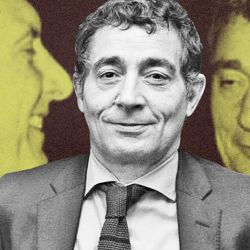

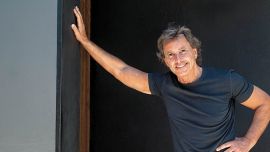

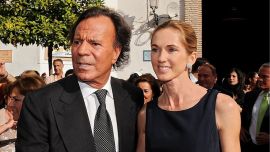


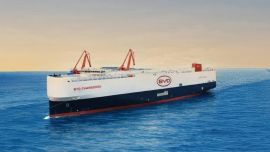




Comments